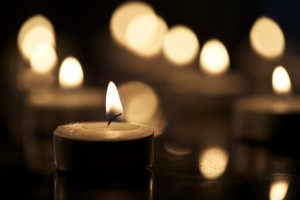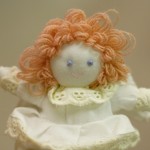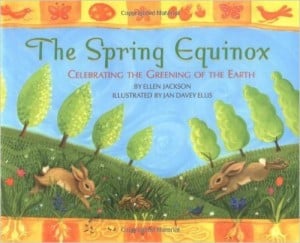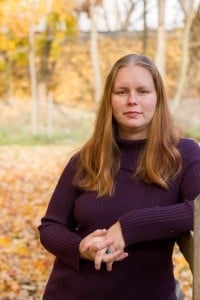 My husband’s grandmother caught Influenza A at the end of last year, and has been in the hospital for a few weeks now. The doctors have told us to expect her passing any day. This is hard for my husband, for his family, and has been especially difficult for our children – her great-grandchildren. Though she has been unable to care for herself for some time now, her family rallied around her, and she has been a constant presence in my mother-in-law’s home. They live a block away from us, and we visit each other at least once or twice a week. My children grew up in their Nani-Jon’s lap (Nani is the Urdu word for maternal grandmother, since that is what my husband calls her, and Jon is a pet name like ‘dear’ or ‘honey’). Though she speaks very little English, and her condition has been deteriorating since my oldest was born, there is a special bond shared between them. Even when she wasn’t speaking much, her eyes would light up and she would call out ‘Gria’ (little doll) when one of the children came to sit by her, and she would smile and laugh at their playing even when little else was getting through to her. I always treasured these moments – in most American families, my children wouldn’t have the opportunity to spend so much time with their great-grandmother. And now, we’re all going to have to learn to live in a world where Nani-Jon is not physically present.
My husband’s grandmother caught Influenza A at the end of last year, and has been in the hospital for a few weeks now. The doctors have told us to expect her passing any day. This is hard for my husband, for his family, and has been especially difficult for our children – her great-grandchildren. Though she has been unable to care for herself for some time now, her family rallied around her, and she has been a constant presence in my mother-in-law’s home. They live a block away from us, and we visit each other at least once or twice a week. My children grew up in their Nani-Jon’s lap (Nani is the Urdu word for maternal grandmother, since that is what my husband calls her, and Jon is a pet name like ‘dear’ or ‘honey’). Though she speaks very little English, and her condition has been deteriorating since my oldest was born, there is a special bond shared between them. Even when she wasn’t speaking much, her eyes would light up and she would call out ‘Gria’ (little doll) when one of the children came to sit by her, and she would smile and laugh at their playing even when little else was getting through to her. I always treasured these moments – in most American families, my children wouldn’t have the opportunity to spend so much time with their great-grandmother. And now, we’re all going to have to learn to live in a world where Nani-Jon is not physically present.
I wish this was a how-to post. I wish I had all the answers about how to smooth this transition, how to soothe my children’s fears without lying to them, how to make everything better. But like so much of parenting, nobody has these answers. They’re going to be different for every child, for every parent, for every family. My oldest is very sensitive about the subject of death – even at 2 or 3 years old, she would cry because she knew someday Mommy and Daddy would die. My second daughter is four now, and seems to understand, but is very nonchalant about the subject. She knows Nani-Jon will be gone, but doesn’t connect it to herself or realize the impact this will have on her life. Talking about death to these two children is so different.
When my grandfather died earlier this year, it was a rather abstract concept to my children – we weren’t able to visit as often as I would have liked, and they didn’t know him well. I spent the week he passed sharing memories, telling stories, and crying. Through my eyes, they began to understand him, but losing him wasn’t a big emotional impact for them. This is a very different experience – this is a woman they knew and loved very much, who seemed to love them above everyone else around her. To further complicate matters, religious beliefs in my family are a varied bunch. My husband is an atheist, my in-laws are Muslims, and I am a Pagan – so I cannot tell my children that their Nani-Jon is absolutely watching over them while my husband tells them that she is absolutely gone forever. Both of us accept the possibility that our religious beliefs might be incorrect, but that doesn’t help when trying to comfort worrying children. They seem to want a solid answer, an assurance that she is just away somewhere – and these are words that come easily to me because of my own Christian upbringing. But they aren’t answers that I can give, that anyone can give. All I can tell them is what I believe. That their Nani-Jon, and her mother, and her mother, and back and back to all of the mothers whose line has brought my children to this world will watch over them even after she is gone from her body. I can tell them that she lives on in their hearts, in their spirits, in all the good things they do that she inspired. I can tell them to mourn, because she is gone, but be glad because her difficult struggle these past few years has ended. I can tell them that I believe she will hear them if they talk to her, that she will be thankful if they bake her favorite cookies, that she will want them to tell her stories and listen to those that others tell and just.. remember her.
photo courtesy of shutterstock
















